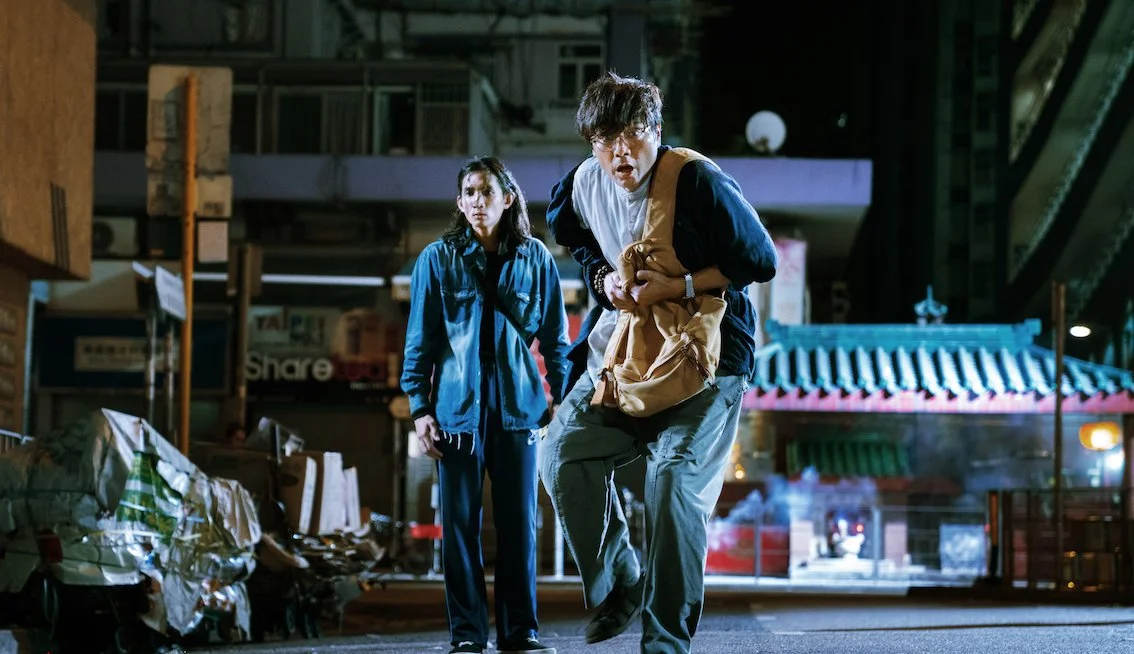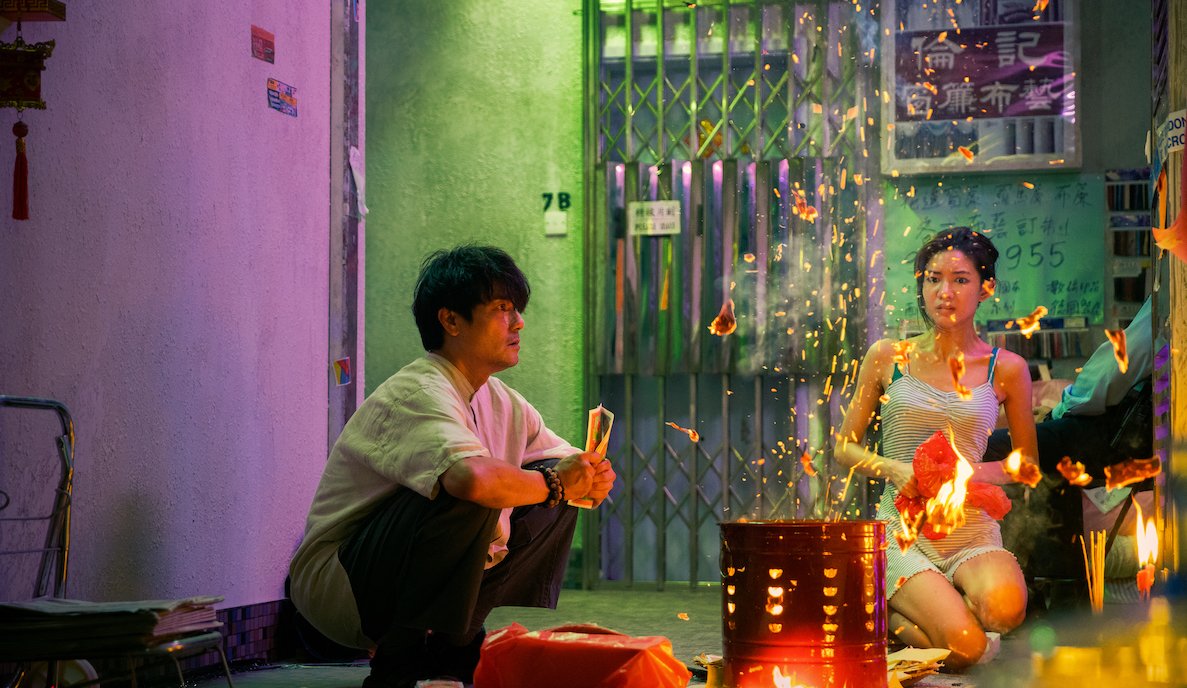Mad Men
Dead chicks? Check. The spectre of traditional superstition? Check. A blurred line between sanity and insanity? Uh-huh. It Must be Soi Cheang.
Mad Fate
Director: Soi Cheang • Writer: Yau Nai-hoi
Starring: Gordon Lam, Lokman Yeung, Berg Ng, Peter Chan, Ng Wing-sze, Bonnie Wong
Hong Kong • 1hr 49mins
Opens Hong Kong April 20 • IIB
Grade: B
There’s a scene about halfway through Soi Cheang Pou-soi’s latest, Mad Fate | 命案, when a stray cat actively fucks with troubled wannabe serial killer and cha chaan teng delivery guy Siu-tung (Lokman Yeung Lok-man, MIRROR) by swiping an important item from under his nose. This is hilarious for two reasons. One, whoever wrote Mad Fate (The Longest Nite, Election, and Throw Down wizard Yau Nai-hoi) clearly has a cat and understands how a cat will always, always fuck with you. And two, it’s an aggressively CGI moment of levity amid a lot of grim, gory, heavy storytelling about the tension between fate and free will, and between madness and superstition, some of director Cheang’s favourite material.
Mad Fate follows the punishing Limbo, possibly Cheang’s best film to date, but also his bleakest and most violent, after the nasty under-the-radar gem Dog Bite Dog. This is Limbo lite, trading in many of the same ideas and themes, and again starring the second hardest working man in Hong Kong, Gordon Lam Ka-tung. There’s a narrative argument to be made for Limbo’s gore (it’s your choice to buy its violence towards women or not), a little less so here, but Mad Fate works more than it doesn’t, and it has some of Cheang’s most mature language and imagery; he gets a huge hand from The Mission and Limbo DOP Cheng Siu-keung. Like all his films, it will be a love-it-or-hate-it affair, and for anyone with a taste for skeevy, throwback Hong Kong noir it will be the former.
So, it’s a dark and stormy night, and The Master (Lam), a mahmahdei fortune teller, is helping a hooker, May, avert her own preordained demise with a faux burial designed to confuse the gods. The wind and rain send things down a haywire path and the woman marches off, thinking to hell with it, she’s taking her chances. The Master is not very good at his job. Elsewhere, maybe in Causeway Bay, The Veteran Cop with a bitchin’ ’stache (Berg Ng Ting-Yip, Drug War) is warning area prostitutes to be on the lookout for shady, homicidal type who seems to be targeting them. The Master is so poor at fortune telling that May winds up dead at the hands of The Therapist (Table for Six’s Peter Chan Charm-man), a cool, collected psycho (this is not a spoiler). When Siu-tung stumbles upon the murder scene, it stirs deep-seated, murderous thoughts, which are detailed in flashback, and which The Master decides to cure him of – before he acts them out on working girl Fung (Ng Wing-Sze, Septet).
As we learn more and more about both The Master and Siu-tung, Yau layers the story with questions about the value of faith versus science, and about how much of what we do is pre-determined or the result of personal agency. As Siu-tung edges closer and closer to his murderous breaking point and The Master gets more and more frantic in his aims, the lines between these conflicting beliefs blur. Quite ambitiously Yau and Cheang position The Master on the border between abject devotion to his gods and talismans and his weakening grip on reality.
None of this works without Lam’s commitment to The Master, or a creepy turn by Chan as the maniac lurking in the background with his own issues to deal with. Lam goes all-in – occasionally too far in – on The Master’s slowly fracturing mind and makes his own maniacal belief in Siu-tung’s “fixability” almost as dangerous as Siu-tung and The Therapist’s impulses. Is it an artful and sensitive examination of mental health? No, but tonally it slots in seamlessly with the garish thriller elements that flirt with Grand Guignol. That’s something I’d pay to see Cheang do, and those are the elements that work best here. Cheang continues to demonstrate an above average grasp of suspense and pacing.
Yau teases out the story threads quite meticulously, some would call it needlessly convoluted, but to his credit the parts do come together in one thick braid. Strangely enough, considering Cheang’s fondness for turning the camera on the urban (and human) decay, corruption and cycles of violence that inform life in Hong Kong, Mad Fate has a (gulp?) happy ending, with redemption in some form coming to Siu-tung and The Master a lot less miserably than it did to Lam’s vengeful cop in Limbo. Did you expect different? This one’s in colour. — DEK



